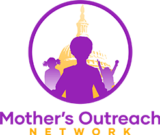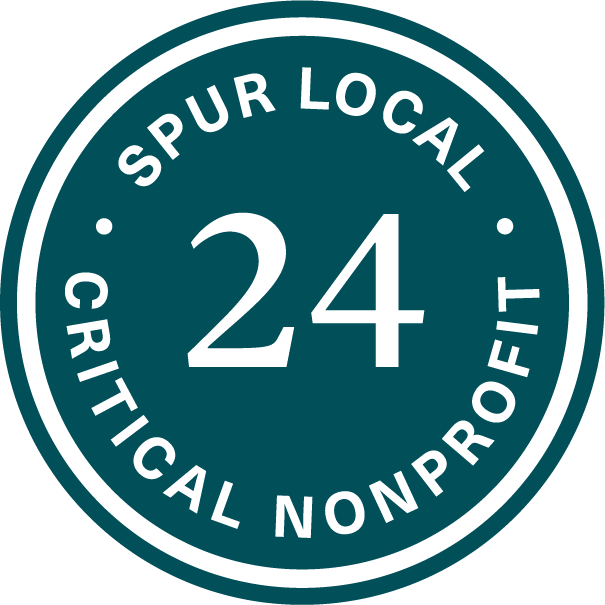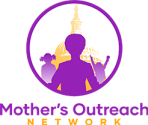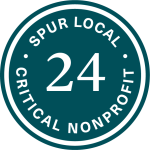Testimony before the Committee on Business & Economic Development
Public Hearing on B24-0616
The “Earned Income Tax Credit Clarification Amendment Act of 2022”
Melody R. Webb, Esq.
Mothers Outreach Network
Monday, April 18, 2022, 9 a.m.
Good morning, Chairman McDuffie and Committee members. My name is Melody Webb, I’m Executive Director of Mothers Outreach Network, head of the DC Guaranteed Income Coalition, and also a native Washingtonian. MON is a non-profit that uses legal and policy advocacy and community mobilization to fight poverty and racial inequity, focusing on Black moms with children entangled in the child welfare/family regulation system. Also, we are going to launch a donor-funded guaranteed income cash pilot for moms who are CFSA-involved.
The Coalition’s mission is a moral one, to achieve a permanent guaranteed income that provides monthly cash payments to our District neighbors, ensuring everyone lives above the income floor of the federal poverty line, $13,000 per person. Some (100,507) fifteen percent of the city’s total population are below it.2 Pre-pandemic, 35% of Black D.C. families headed by single mothers were impoverished.[1] And poverty has consequences that include family destabilization and CFSA involvement.
I testify today in support of B24-0616- The “Earned Income Tax Credit Clarification Amendment Act of 2022”. Protecting the existing public benefits of DC EITC recipients is critical to realizing the transformational promise of the historic increase in local EITC payments beginning tax year 2022 and made monthly.
The importance of protecting these benefits should not be dismissed nor minimized, nor should the peril of beneficiaries losing safety net benefits. When no-income or low-wage people living in poverty receive cash infusions, they risk their SNAP, TANF or housing subsidies. And most working age SNAP recipients work.[2]
This bill would prevent benefits reductions for various locally administered cash assistance programs such as TANF, and other programs by ensuring the EITC payments do not count as income for eligibility and calculation of benefits. It means avoiding that slow reduction or sudden cliff effect, where a person in a fast casual job or occasional gig work receives the EITC boost but their payments result in a reduction or total loss of a housing subsidy. The benefits cliff is, for example, proving real for guaranteed income monthly cash programs across the country: in the Mississippi pilot mothers experienced up to $400 in lost benefits from their $1,000 payments.[3] In San Francisco’s Abundant Birth Project[4] they had to secure waivers for federally administered benefits. And in certain jurisdictions, a hold harmless fund for housing was created, given that certain federally administered housing programs consider assets and income, including regular gifts in determining eligibility.[5] It is unclear whether the bill will mitigate all cash assistance benefits cliff issues.
We support expansion of the language to include all periodic payments, including payments received by participants in guaranteed income cash transfer programs, of which there is an increasing number in the District of Columbia. DC is currently a tale of three direct cash transfer universes: 1) The instant local DC EITC expansion program, 2) the publicly funded guaranteed income transfer pilot (which our coalition advocated to fund in the FY 22 Budget Act), and 3) the increasing number of private donor-supported guaranteed income pilots that were inspired at the height of the COVID-19 pandemic by THRIVE East of the River.[6] We applaud, celebrate and support this instant model legislation to protect SNAP and other benefits of EITC participants. Respectfully, we are happy that emergency legislation[7] to protect benefits of participants in the Mayor’s guaranteed income initiative has passed into law, however, we hope that the third, donor-funded program to address income gaps for DC residents and workers will also receive benefits cliff protection through action of the City Council.
This bill is a model of the moral mandate to protect the safety net benefits of people seeking economic mobility and lives of dignity. Thank you for the opportunity to testify.
[1] https://nwlc.org/state/district-of-columbia/ Disproportionately concentrated in lowest wage employment, in DC Black women make .51 cents to the dollar of white men.
[2] https://www.cbpp.org/research/food-assistance/most-working-age-snap-participants-work-but-often-in-unstable-jobs
[3] See https://www.aspeninstitute.org/wp-content/uploads/2020/12/ASP-FSP_PersonCentered_Report_Single_1103215.pdf at 13 and https://www.economicsecurityproject.org/the-magnolia-mothers-trust/ (Discussing the effects of the benefits cliff on participants receiving periodic payments).’s
[4] SAN FRANCISCO OFFICE OF FINANCIAL EMPOWERMENT, PROTECTING BENEFITS IN GUARANTEED INCOME PILOTS: LESSONS LEARNED FROM THE ABUNDANT BIRTH PROJECT (Nov. 2021), https://sftreasurer.org/sites/default/files/2021- 12/Protecting%20Benefits%20Report_v4.4.pdf.
[5] 24 C.F.R § 5.609(b)(7) (Annual income includes, but is not limited to: periodic and determinable allowances, such as alimony and child support payments, and regular contributions or gifts received from organizations . . .).
[6] https://bbardc.org/thrive/. See also the newly launched pilot Let’s Go DMV, a DC metropolitan area privately funded pilot that will make $1000 payments for five years to displaced hospitality workers who live and/or reside in the District of Columbia, using an innovative double bottom-line investment model. https://www.letsgodmv.org. MotherUp pilot, to launch in 2022 by Mother’s Outreach Network, is a pilot for mothers experiencing involvement with Child and Family Services Agency.
[7]See the Direct Cash Assistance Pilot Program Temporary Amendment Act of 2022, https://mail.google.com/mail/u/0/?ogbl#search/LIMS?projector=1



